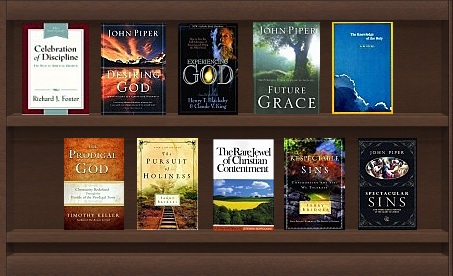According to Psalm 1:1-3, God will bless the woman who does not embrace the world and its ways, but instead finds her delight in God’s Word and “meditates” on it “day and night.” Sounds like we should all practice a little biblical meditation.
Unfortunately, while we are often encouraged to foster many of the spiritual disciplines, we don’t hear much about meditation. Why is that? I think many of us have misunderstood what it means to meditate on God’s Word because other forms of meditation carry a negative connotation. We don’t know what it is, why we should do it, or how we should do it. Well, let’s dig in and try to gain a little understanding of this overlooked spiritual discipline.
What is Christian meditation?
 Because of many New Age religions and practices like transcendental meditation, many of us picture “meditation” as emptying our minds of all thoughts. This is not biblical meditation. In fact, God’s Word makes it clear we are to meditate by filling our thoughts. A few things God tells us to meditate on include His law, love, mighty deeds, statutes, and promises. He also encourages us to “think on” whatever is noble, right, pure, lovely, admirable, and praiseworthy (Phil 4:8).
Because of many New Age religions and practices like transcendental meditation, many of us picture “meditation” as emptying our minds of all thoughts. This is not biblical meditation. In fact, God’s Word makes it clear we are to meditate by filling our thoughts. A few things God tells us to meditate on include His law, love, mighty deeds, statutes, and promises. He also encourages us to “think on” whatever is noble, right, pure, lovely, admirable, and praiseworthy (Phil 4:8).
In his book “Spiritual Disciplines for the Christian Life,” Donald Whitney helps us understand biblical mediation. He uses the analogy of a tea bag. While reading and hearing Scripture may represent a dunk or two, meditation is like letting the bag steep. It’s the idea of “mulling” something over or “pondering” a subject.
Whitney defines biblical meditation as “deep thinking on the truths and spiritual realities revealed in Scripture for the purposes of understanding, application, and prayer.”
Why should we meditate?
Charles Spurgeon said that anyone who wanted to possess the treasure of God’s Word “must dig into Scripture as one who seeketh for choice pearls.” Meditation takes dedication, time, and hard work. So why would we want to practice this spiritual discipline?
First, as we’ve already seen, the Bible establishes meditation on God’s Word as the example for His people. Second, our meditation on God and His truth pleases God (Ps 104:33-34). And third, meditation benefits us spiritually. Meditation helps us better understand and apply the truths of God’s Word. Someone who regularly meditates on God’s Word will not simply survive in this life, she will flourish.
He is like a tree planted by streams of water, which yields its fruit in season and whose leaf does not wither. Whatever he does prospers. Psalm 1:3
Simply reading through or hearing a biblical passage will not affect our hearts, minds, and lives like steeping in its richness. We must immerse ourselves in God’s Word, holding onto it in our thoughts until its truth becomes a part of who we are. Then we will be like a tree whose roots reach down to an endless supply of living water. We will be sustained in drought and difficulty. And in God’s timing our lives will produce an abundance of fruit for His glory.
How do we meditate?
Let’s get hands on and practical so we can get a feel for how to meditate on God’s Word.
- Choose a passage. It may be one that God impressed on your heart during Bible reading or one that jumped out at you during a sermon. It should be small enough to work through thoroughly.
- Reread with different emphasis on different words and phrases.
- Rewrite the passage in your own words.
- Ask questions about what it teaches. For instance, does this passage reveal something I should:
- Believe about God?
- Praise or thank or trust God for?
- Have a new attitude about?
- Do for the sake of Christ, others, or myself?
- Look for personal application then obey.
- Pray through the Scripture.
- Think on it throughout the day.
I want to be like that tree planted by streams of water. I long to please God and flourish through the truth of His Word. How about you?
Let’s give mediation a try right now.
Read Psalm 1:1-3. Follow the steps above. What did you learn?
Share with us something God taught you about Himself or a way He personally applied the Scripture.
Recommended Reading:
Spiritual Disciplines for the Christian Life, by Donald S. Whitney
Meditating on the Scriptures, by Charles Spurgeon












